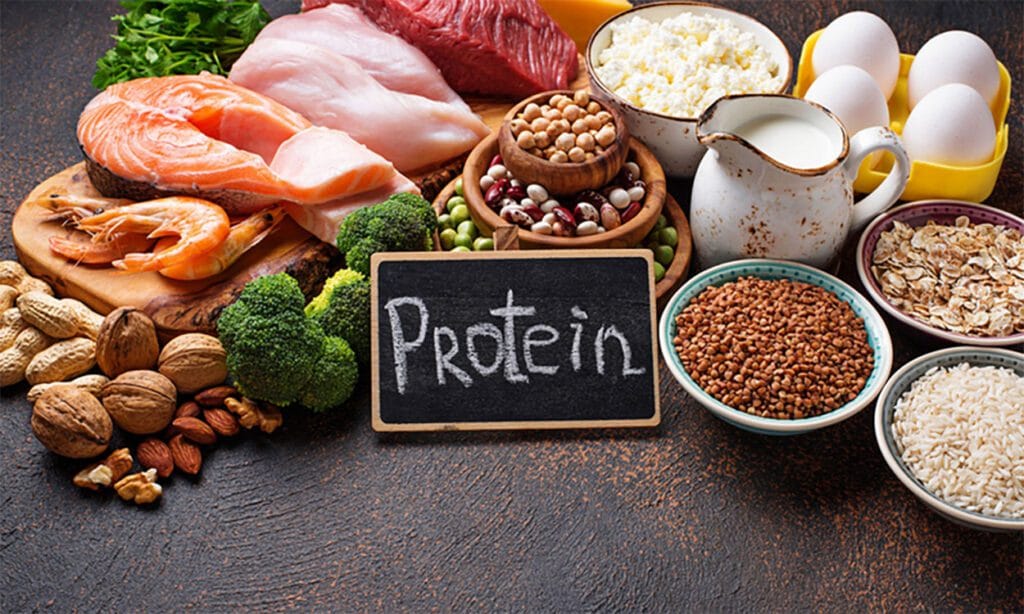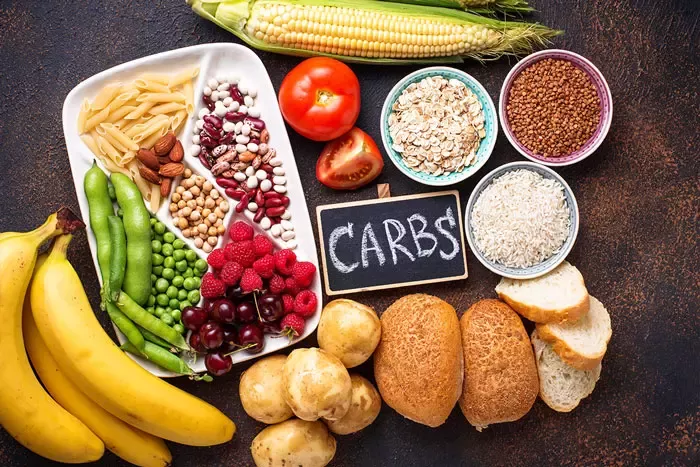Eating a nutritious diet is the first step to feeling strong and energised. Macronutrients are at the core of nutrition, which is like the foundation of everything. Your body uses these components of food as fuel on a daily basis. They aid in the development and repair of your body. Understanding macronutrients is very beneficial if you want to improve your eating habits, reduce body fat, or gain muscle. We’ll discuss the definition of macronutrients, their significance, and the ideal foods to consume in this blog. This information will help you make smart choices about your diet.
Macronutrient: What Are Proteins, Carbs, and Fats?
Your body requires large amounts of macronutrients. They support vital bodily processes and provide you with energy. Three primary categories exist:
- Proteins help in the development and maintenance of tissues and muscles. They are present in foods including nuts, beans, and meat.
- You get rapid energy from carbohydrates. They are found in meals including fruits, bread, and pasta.
- Fats help cells function and store energy for later use. Foods like avocados, butter, and oils contain them.
Every macronutrient has a unique function in maintaining the health and functionality of your body. Knowing what each one does, where to get them, and how much your body requires is crucial.
1. Macronutrient: Understanding the Role of Protein
Protein is often called the building block of life because it plays many crucial roles in our body. Proteins are made up of amino acids, which help repair tissues and muscles, build new muscle fibers, produce enzymes and hormones, support immune system health, and maintain healthy hair, skin, and nails. For athletes and active people, protein is especially important as it aids recovery and repairs muscles after exercise. But even if you’re not into lifting weights or intense workouts, it’s still essential. Your body needs protein to handle everyday upkeep and keep you in good health.
Best Sources of Protein
Both plants and animals can provide you with protein:
From Animals: Consume lean beef, turkey, chicken, or seafood like tuna and salmon. Dairy items like cottage cheese and Greek yoghurt are other fantastic sources, as are eggs.
From Plants: Incorporate chickpeas, black beans, and lentils into your diet. Another fantastic option that is high in protein is tofu or tempeh. Add quinoa and edamame, and for extra protein, don’t forget to include nuts and seeds.
How Much Protein Do You Need?
According to the majority of experts, persons who do not exercise frequently should consume 0.8 grams of protein for every kilograms of body weight. Your protein requirements, however, may be higher if you exercise frequently or are attempting to gain muscle. The suggested quantity may increase to 1.2 to 2.0 grams of protein per kilogramme in these circumstances

2. Carbohydrates in Macronutrient: Fueling Energy and Performance
Your body uses carbohydrates as its primary energy source. Your muscles and brain are powered by glucose, which is produced when you eat it. Carbohydrates are beneficial in multiple ways:
- They also improve your mood and brain function.
- They maintain steady blood sugar levels.
- Because they contain fibre, they promote healthy digestion.
- They give you the energy you need to work out and perform better.
Carbohydrates are not unhealthy, despite the unfavourable perception of some diets. Over time, eating the correct kinds of carbohydrates can help you stay healthy and have more energy
Best Sources of Carbohydrates
There are two primary categories of carbohydrates: complex and simple. It’s a good idea to eat more complex carbohydrates because they’re high in nutrients and digest slowly.
Complex Carbohydrates: Whole-grain bread, whole-grain pasta, quinoa, brown rice, and oats are all good sources of complex carbohydrates. Complex carbohydrates are also found in legumes like beans and lentils. This also applies to starchy vegetables like sweet potatoes, corn, and peas.
Eat in moderation when consuming simple carbohydrates, which are present in fruits like bananas and apples. Simple carbohydrates can also be found in milk, yogurt, and honey. Moderate consumption of these items is recommended.
Carbohydrate Needs
An essential component of your diet, carbohydrates should typically make up 40–60% of your daily caloric intake. This could alter, though, depending on your own objectives or pursuits. For example, you may need to consume more carbohydrates to provide you with the energy you require if you’re engaging in a lot of strenuous exercise, such as weightlifting or running. On the other side, you may strive to eat less than the typical amount of carbohydrates if you’re trying to cut back on them for health or weight loss reasons. It’s critical to consider your nutritional goals and modify your carbohydrate consumption accordingly.

3. Fats and Macronutrient: Supporting Hormones and Brain Health
Fats are essential for preserving health. They supply sustained energy, which is necessary for day-to-day tasks. In addition to providing energy, fats are essential for a number of body processes:
- Hormone production: Your body uses lipids to help produce hormones, which are chemical messengers.
- Brain health: Fats help the brain grow and make sure it works well all your life.
- Cell membranes: Fats play a crucial role in the structure of cell walls, preserving their elasticity and strength.
- Vitamin absorption: Your body needs lipids in order to adequately absorb certain vitamins, such as A, D, E, and K.
- Reducing inflammation: Fats contribute to the reduction of tissue swelling and irritation, which is critical for general health.
To support these vital processes, choose the appropriate fats and eat them in moderation rather than cutting them out of your diet.
Best Sources of Fats
Maintaining the health of your heart, brain, and body depends on eating healthy fats. These healthy fats are present in a variety of meals.
Avocados, for instance, are a fantastic source of good fats. These healthy fats can also be found in nuts like walnuts and almonds, as well as seeds like sunflower, flax, and chia seeds. Coconut oil can also be useful, but it’s best to use it sparingly. Olive oil is another great choice. Healthy fats are particularly abundant in fatty fish, so think about include mackerel, sardines, and salmon in your meals.
Daily Fat Recommendations
20 to 35% of your daily calories should come from fat. This is due to the fact that fat contains a lot of calories—nine calories per gram. Proteins and carbohydrates, on the other hand, only contain four calories per gram. For this reason, it’s critical to watch how much fat you eat in order to keep your diet balanced.

Balancing Your Macronutrients
Each person may have a distinct preference for the macronutrients—fats, carbs, and protein. Your body type, your lifestyle, and your goals will all play a role. However, a well-balanced diet typically consists of:
20–30% protein
40–60% carbohydrates
20–35% Fats
Consider your plate as follows to help you picture it: Vegetables and complex carbs, such as beans, brown grains, and sweet potatoes, should make up half of your plate.
A quarter of your dish: This is where lean proteins like tofu or chicken belong.
One-quarter: Nuts, avocado, and olive oil are examples of healthy fats that fit here.
Final Thoughts:
Our mission at Shape & Thrive is to make nutrition easy and accessible. Instead of feeling overwhelmed, we want you to feel confident. Knowing the fundamentals of macronutrients will help you design meals that fit your needs and achieve your objectives.

